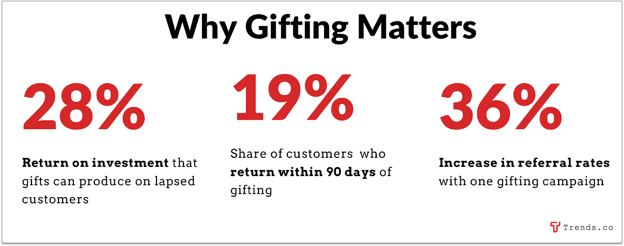Moving your business online is a must in today’s digital world.
The digital revolution has enabled businesses to reach new heights of growth. No matter how small or remote your local business is, an online presence is a must to stay competitive and remain sustainable in the changing landscape of business.
But what should you put on your digital website? Is it sensible? What content is required? How can you make it appealing? And, most importantly, are there any quality control issues that need to be addressed before launching the site officially?
Let’s take a look at some of the key considerations when planning and launching an online presence for your business.
1. Have a Clear Vision for Your Online Business
You are aiming to attract customers online and have them become long-term clients. This means that you need to have a clear vision for your business online.
What does your audience want to see? Is there a need for your product or service? How can you address this need through your website?
You need to know the answers to these questions before you begin. A clear vision gives you a clear path to finding out what your audience wants to see. You can use a variety of techniques to help you achieve this. Some of them are:
- Research: Conducting market research is a crucial part of any business plan. Conduct your own surveys to find out what your customers are in need of and how you can offer such products or services on your website.
- Discovery: Finding out what people do and don’t want to see on your website is another important part of the discovery process.
- Planning: Having a clear plan for your business online will help you stay organized and focused on the most important aspects of your plan.

2. Understand Your Audience
The audience for your online presence is the people who will be visiting your website and using your products or services.
It is important to understand your customers’ needs and wants so that you can cater to them in the most effective way possible. Your audience should be comprised of both current and potential customers of your business.
It is important to know what your potential clients want to see on your site. Knowing this information will help you to create a content-rich site that answers the questions your audience has and this will give your business more credibility.
3. Develop a compelling digital product
Once you understand your audience, it is time to think about your product. A website that offers a compelling digital product is a sure-shot way to build your brand and increase sales.
A great way to get your visitors on task is to include a series of different activities that compel visitors to continue exploring the site. For example, add a special report or blog on your website that highlights the latest news and happenings in your industry.
Include videos, images, infographics, and other content that your customers can interact with. Try to make your site engaging and user-friendly, and make it clear what the benefits of visiting your site are.
4. Choose a good domain name
A great way to set yourself apart from the competition is to choose a great domain name. The domain name should be descriptive enough to let your clients know the services you offer. It should be easy for people to remember, but not so easy that people are likely to make mistakes.
A domain name should directly relate to your products or services. For instance, if your business is called “Dog Food,” then your domain name should be something like “dogfood.com.” This will make the site more accessible to users around the world, and will also help you to get more traffic from potential customers in your local area.
According to Saw, a renowned domain brokerage firm, a good domain name can make your website feel more professional and can help you build a long-term relationship with your customers.
A poor domain name, on the other hand, can turn off potential customers as well as prevent you from growing your business online. You can learn more about domains and why the right domain is important for your business through their website: saw.com/appraisals/
5. Set Up a Good Homepage
Once you have chosen a domain name and have set up a great website on it, it is time to set up your homepage. Your homepage is the first page visitors see when they click on your website link. It is the first impression your website will have, so it is important to make it enticing and relevant.
You can do this by including your brand’s story, values, and history as well as current news stories that relate to your brand. Your homepage will act as the launch pad for your entire digital presence, so make it special.

6. Make sure your website is appropriate for your brand
The branding of your site is just as important as choosing a good domain name. Your brand is what people see when they encounter your site. It needs to be appealing, professional, and meaningful. It is not about the bells and whistles that you might add to your site.
It’s about the content and linking to that content. For example, if your brand is called Health-d-Boost, and your mission is to provide dietary supplement information, then your website should reflect that.
You need to make sure that the content available on your website relates to your brand, is appealing to your target market, and will help your business grow.
7. Make your site SEO-friendly
The Search Engine Landscape is changing constantly these days. Many businesses are using online marketing to get more traffic to their site.
With more and more people using the internet, and with Google leading the charge with its updates in the SEO field, it is important to make your site as SEO-friendly as possible. This is crucial if you want to rank well for key search terms and attract new organic customers to your site.
8. Set Up a Blog
A blog is a great way to communicate with your audience, both in terms of what you write about and also how you write it. You can use blogging as a form of marketing, and you can use your blog to explain your company and products in a variety of different ways.
You can also use your blog to create sales pages, reveal your company’s proudest moments, and even publish project updates. Whatever you choose to write about, make sure that it is relevant to your audience and that it gives them useful information.
9. Make your site user-friendly
Users of your site will have a good experience if they are able to find what they are looking for easily. It is important to make your site user-friendly, which means it’s important to ensure your site appeals to as many people as possible.
You can do this by making your pages load fast, by using optimized images and fonts, by using your business’s name in your site’s title, and by including your business’s contact information at the bottom of every page.

Things to Consider When Moving Your Business Online
Here are some of the key things to consider when moving your business online:
- Have a clear vision for your online business.
- Understand your audience.
- Develop a compelling digital product.
- Choose a good domain name.
- Make sure your website is appropriate for your brand.
- Make your site SEO-friendly.
- Make your site user-friendly.
Your business’s online presence is not just about making sure your website is optimized for search engines but also ensuring that your site looks good too! Your site needs to be easy on the eyes and contain content that will engage people with the information they need as well as what they want.
Make sure you have thought through all aspects mentioned here before launching so that you can take advantage of all opportunities available in the digital world today!

I am Adeyemi Adetilewa, a media consultant, entrepreneur, husband, and father. Founder and Editor-In-Chief of Ideas Plus Business Magazine, online business resources for entrepreneurs. I help brands share unique and impactful stories through the use of public relations, advertising, and online marketing. My work has been featured on the Huffington Post, Thrive Global, Addicted2Success, Hackernoon, The Good Men Project, and other publications.









More Stories
9 Easy Ways To Reduce Business Operating Costs For Startups
Shopping ethically still a priority for Australians, despite cost of living concerns
Onclusive Expands US Footprint with Critical Mention